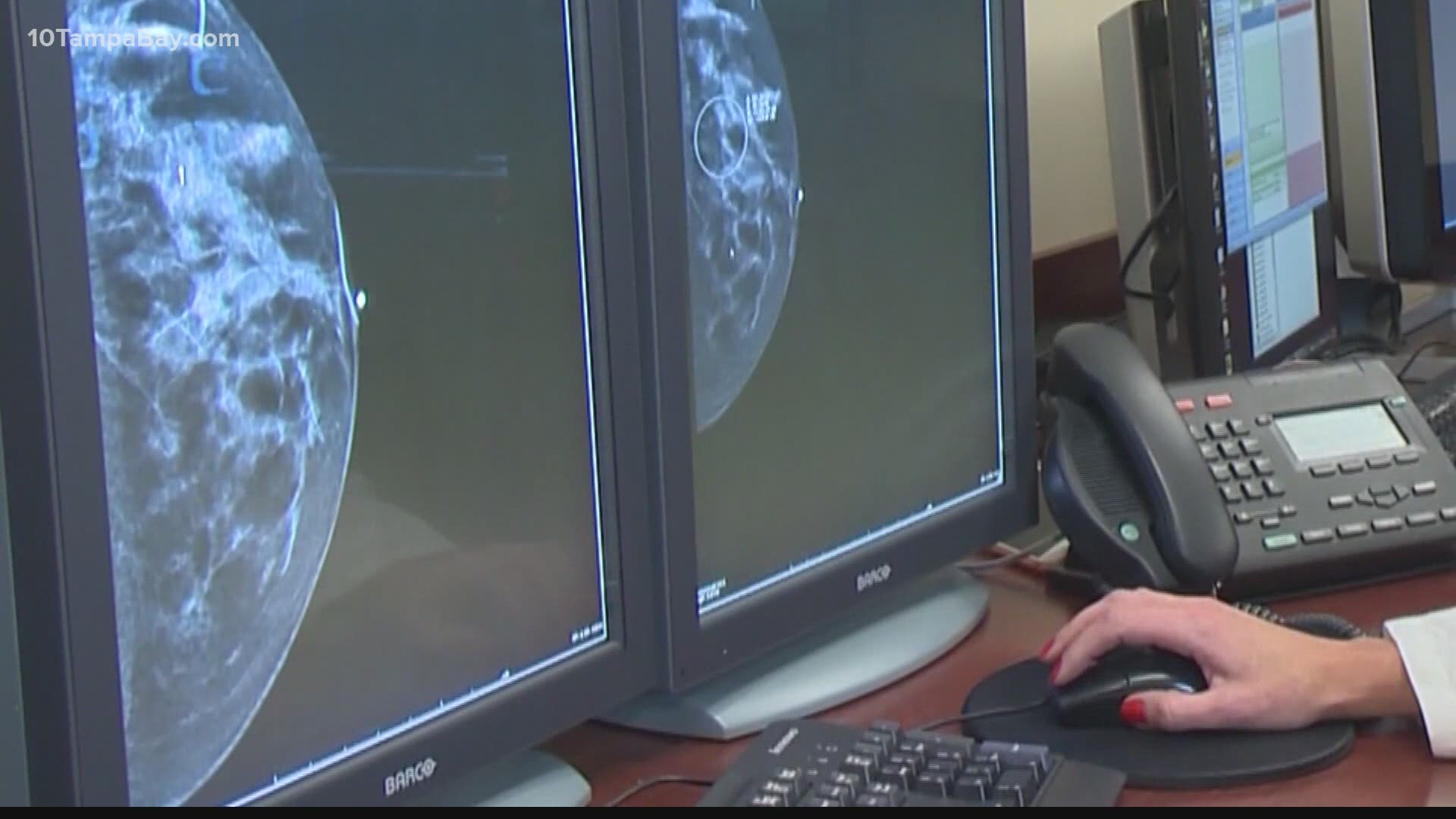TAMPA, Fla. — At the beginning of the pandemic, elective procedures were put on hold.
That included mammograms and cancer screenings.
While it was done to keep people safe from coronavirus, it also created a major decline in life-saving care. This could have consequences for years to come.
The National Cancer Institute looked at this in a new study. It found the decline in colorectal screenings and mammograms could result in an additional 10,000 deaths beginning in 2021 because that early detection will be lost.
We know early detection is key.
Dr. Hassan Ebrahim, an oncologist with BayCare Medical Group, says one in eight women will have breast cancer in their lifetime.
But, advances in technique and technology of mammograms have led to early detection, which means less invasive treatment and fewer complications.
The issue with the pandemic is getting people to go get those mammograms.
"Nobody can underestimate the evil of the pandemic, but we cannot underestimate the evil of the cancer itself and how early detection is so important. Mammograms and other tools have also been saving lives," Ebrahim said.
The American Cancer Society says the pandemic has contributed to decreases in breast, colorectal and cervical cancer screenings by as much as 94 percent.
While people are starting to go back to their screenings, it's not back to pre-pandemic levels yet.
The advice from Ebrahim is to go get screened. Your doctors and hospitals are following safety procedures and he said you should be as well.
The CDC has recommendations for healthcare facilities to reduce the risk of COVID transmission:
Screening centers should be available to answer questions from patients via phone or web portal before and/or after the screening procedure.
Patients should be pre-screened for COVID-related symptoms before screening appointments.
Scheduling of appointments should allow for physical distancing between patients, and longer appointment times, if needed, to avoid crowding in waiting rooms and patient care areas.
There should be limitations on visitors other than patients and/or their caregivers into the screening facility.
If not done in front of you, the screening center should be able to tell you how often equipment and surfaces are disinfected and cleaned.
Everyone, including patients and staff, should wear a face covering or face mask, where appropriate. There should be frequent handwashing and use of hand sanitizer by staff, patients, and visitors.
Remember, October is Breast Cancer Awareness Month, and that checkup could save your life.
You can find more information at the American Cancer Society.
What other people are reading right now:
- Rays take Game 1 of the ALCS, beating Houston 2-1
- Supreme Court nominee Amy Coney Barrett's first hearing begins
- What is Indigenous Peoples Day? And what happened to Columbus Day?
- President Trump set to make first visit to Florida since testing positive for COVID-19
- 5 things to know about Amy Coney Barrett as Supreme Court hearings begin Monday
- What you need to know about the 6 constitutional amendments on Florida ballots
►Breaking news and weather alerts: Get the free 10 Tampa Bay app
►Stay In the Know! Sign up now for the Brightside Blend Newsletter

